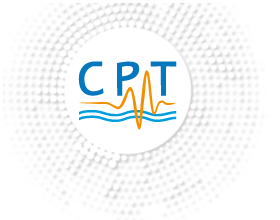Agenda
Samedi 10 décembre 2016
16h00 – 17h00, Amphi 5 du CPT
A carbon nanotube weakly coupled to electrodes can be seen as a single-level or a two-level quantum dot, depending on how much its orbital degeneracy is broken. This has dramatic consequences on the supercurrent since the presence of an alternative path for Cooper pairs can modify the sign of the contribution of the cotunneling processes to the current, and thus induce unusual 0-π transitions.
A carbon nanotube weakly coupled to electrodes can be seen as a single-level or a two-level quantum dot, depending on how much its orbital degeneracy is broken. This has dramatic consequences on the supercurrent since the presence of an alternative path for Cooper pairs can modify the sign of the contribution of the cotunneling processes to the current, and thus induce unusual 0-π transitions. In this work, we have measured the current-phase relation in both single and two-level regimes. In the single-level regime, we show that the 0-π transition, governed by the competition between the Kondo effect and superconductivity, happens through composite states 0’ and π’ where the state of the system is controlled by the superconducting phase. These features are typical of a first order quantum phase transition from a singlet to a doublet, originating from a level-crossing. In the two-level regime, the measurement of the current-phase relation puts forward the different nature of some transitions, those between a doublet 0 and a doublet π, which are not associated to a change of magnetic state. Then, the critical current vanishes at the transition and there is no composite state : this is not anymore a first-order transition. After this investigation of DC Josephson effect, I will present as well recent measurements of AC Josephson signal emitted by a carbon nanotube in the Kondo regime, performed by coupling it to an SIS on-chip detector. The aim of this experiment is to provide insights into the Kondo/superconductivity competition at high frequency and out-of equilibrium. We show that, strikingly, when the DC supercurrent is enhanced by the Kondo effect, the AC Josephson effect is not necessary enhanced as well, especially for the highest frequency.
[1] Delagrange, R., Luitz, D. J., Weil, R., Kasumov, A., Meden, V., Bouchiat, H., & Deblock, R. Manipulating the magnetic state of a carbon nanotube Josephson junction using the superconducting phase. Phys. Rev. B 91, 241401(R) (2015)
[2] Delagrange, R.,Weil, R., Kasumov, A., Ferrier, M., Bouchiat, H., & Deblock, R. 0-π quantum transition in a carbon nanotube Josephson junction : Universal phase dependence and orbital degeneracy. Phys. Rev. B 93, 195437 (2016)
